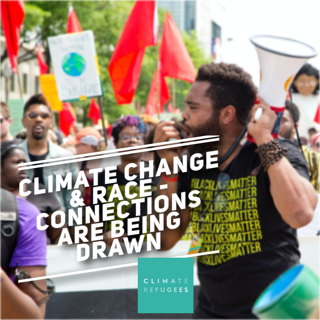This morning, Niue’s Coral Pasisi, a Pacific representative of the Climate Security Expert Network briefed the UN Security Council on climate issues facing the Pacific, after what she said was a decade of lobbying efforts. Her presentation is part of a ministerial-level open debate with a focus to better understand how climate security issues affect different regions.
Along with Pasisi, UN Secretary General Antonio Guterres addressed the Security Council, along with a senior official from the UN Department of Political and Peacebuilding Affairs (DPPA) and Colonel Mahamadou Magai of Niger who was expected to focus on the impacts of climate change on food security and conflict in the Sahel, according to the publication What’s In Blue, from the think tank Security Council Report, a publication and NGO we once worked with.
Pasisi says there are “a great many ways we can connect the impacts of climate change to undermining peace and security, the stability of communities, economies and countries in the region.”
Her goal was to focus the Security Council on climate fragility impacts that warrants a security response of intervention before issues turn into conflict, citing maritime boundaries in the Pacific, impacts around the Blue Economy, global competition for fisheries and related food insecurity in fisheries trade, and displacement of the region’s populations.
Pasisi says people are already being displaced internally and across borders as a result of climate change, with forced displacements occurring within often highly contested land, presenting an additional challenge, especially since there are no existing legal or policy arrangements to protect resources or maritime jurisdictions. (RNZ)
What’s In Blue reported that Germany, president of the Security Council this month, co-sponsored the meeting with nine other Council members. In addition to Council members, several UN member states addressed the Council, representing groups such as the: Alliance of Small Island States, the Nordic Group, Pacific Small Island Developing States, Group of Friends on Climate and Security and Pacific Island Forum. A representative from the EU and Kenya and Ireland, future Council members in 2021-2022 also addressed the Council.
What’s In Blue shared the following questions that were to be examined in a concept note shared amongst Council members ahead of the debate:
How can the Council obtain authoritative information on the impact of climate-related security risks in conflict environments?
What tools, partnerships and early warning capabilities would support the timely assessment of and response to climate-related security risks to prevent the escalation of conflicts?
How can UN in-country resources (including peace operations and special political missions) be enabled to better collect, analyze and report on relevant information in countries and regions in a gender-sensitive manner?
Which current tools can the Council use to address the security implications of climate change and how could these be enhanced to respond appropriately to climate-related security risks?
How can the Council enhance its operational readiness to address such risks?
Climate security remains a controversial topic for the UN Security Council to engage, with China, Russia and the US raising a range of issues that climate change is fundamentally a sustainable development issue, opposing expansion of climate-security language and insistence that other UN agencies are better suited to address the topic.
However, most members seem to support integration of climate-related security risks to examine factors such as drought, food security, water scarcity, desertification as examples that can exacerbate conflict and further support the development of “synergies among the Council and other UN entities in addressing climate-security challenges.”
What’s in Blue reports these countries desire the Council pursue a resolution on climate-security issues, and Germany had drafted a resolution in collaboration with nine other members on June 20, but the negotiations were suspended in early July, as the “political environment in the Council prevented them from pursuing a resolution at the current time.”
Today’s meeting was the Security Council’s fifth thematic debate on climate-security issues. The Council has addressed security impacts related to climate change in 12 resolutions since 2015. (What’s In Blue)
One of these resolutions was focused on climate change impacts in the Lake Chad Basin, which we addressed in our Field Report, “Shrinking Options: The Nexus Between Climate Change, Displacement and Security in the Lake Chad Basin.” Following a trip to the Lake Chad Basin in March 2017, the UN Security Council, in Resolution 2349, recognized the “adverse effects of climate change and ecological changes among other factors on the stability of the region, including through water scarcity, drought, desertification, land degradation, and food insecurity.”







